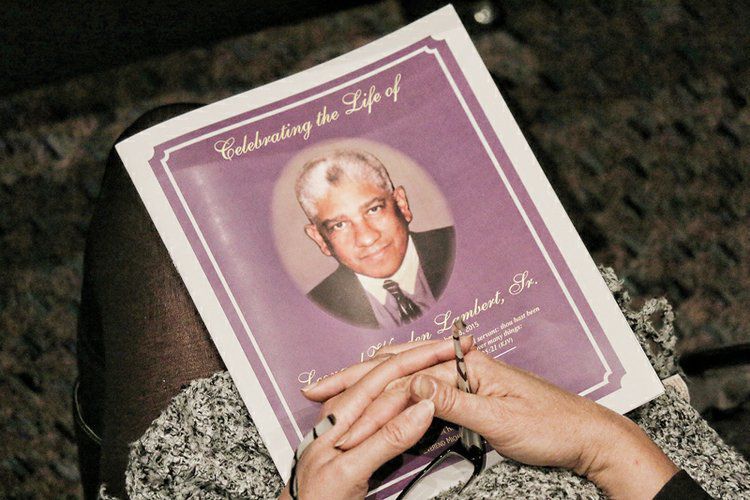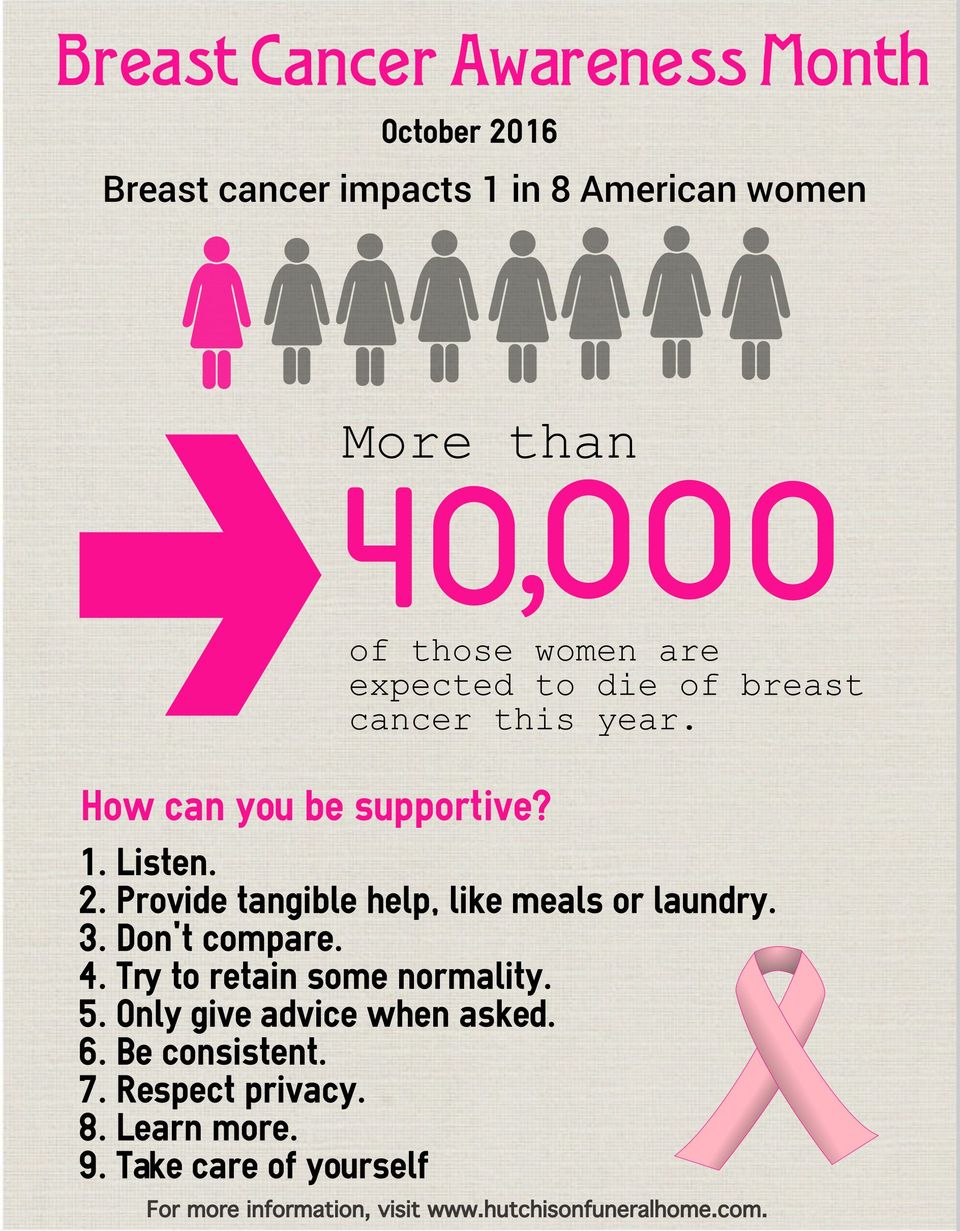How To Support A Loved One With Breast Cancer Diagnosis?
October is breast cancer awareness month, a campaign hosted by the National Breast Cancer Foundation to raise awareness about this disease. Breast cancer affects 1 in 8 American women , and over 40,000 women in the US are expected to die of breast cancer in 2016.
In recognition of this important campaign, we are going to address how you can be an effective supporter when someone you know has received a breast cancer diagnosis.
1. Listen
Try not to react immediately after you hear about the diagnosis. It is easy to say something insensitive and even damaging if you don’t consider your own feelings before talking to someone. Try to reserve your reaction until you have had time to think about your feelings and how you can be supportive. Take the time to truly listen to what the person is telling you and make sure you understand their emotions, too.
2. Don’t just offer help - provide it
With such a major change in their life, it may be difficult for a breast cancer patient to ask for help, and they might not even know what they need. Decide on a exact date to bring a meal or come by to do a load of laundry. Respect their boundaries, but try to be helpful without too much prompting. You could even organize an online calendar to share with the person’s friends and family so you can each take on various duties.
Another great way to provide tangible help is to accompany the patient to their doctor’s appointments. A breast cancer diagnosis can be very isolating. Despite the fact that so many people are affected by the disease, your loved one may feel very alone in this experience. There can be so much information presented in these appointments and a friend can be helpful for processing and retaining that information.
3. Don’t compare
Try not to directly relate your loved one’s diagnosis to someone else’s. Everyone will experience breast cancer differently because everyone has a different medical history. Comparison is not helpful for your loved one, so avoid it. If the newly diagnosed person seems interested in communicating with other cancer survivors, it might be appropriate to share contact information.
4. Don’t let the diagnosis dominate your relationship
The diagnosis hasn’t changed the person you know and love. It is to be expected that the illness will come up in conversation, and never avoid those conversations, but also allow your relationship to continue as normal. Share experiences that you both enjoy and try to retain some semblance of normality. For example, if you and your friend both love old comedies, rent a few and make a date to come over with popcorn.
5. Only give advice when asked
Your loved one will have opinions and information coming at them from all sides when they are diagnosed with breast cancer. They may solicit your opinion or advice from you, and they may not. Respect their boundaries and don’t offer advice that wasn’t requested.
6. Be consistent
Many people will flood the loved one with support after the immediate diagnosis, but breast cancer can be a long battle. Don’t lose touch with the individual who is battling breast cancer. Remain steady in your support and stay connected. Even after the battle is “over” and your loved one becomes a survivor, try to recognize that breast cancer is part of their story and always will be.
7. Respect privacy
If someone shares their diagnosis with you, remember that it is not your information to repeat. Don’t share this information with anyone else without consulting the person who was diagnosed. Even if you are directly asked, simply explain that it isn’t your health and therefore you can’t discuss it.
8. Educate yourself
There are a number of online resources for learning about breast cancer. The American Cancer Society
and the Mayo Clinic
both have very informative websites. There are also several memoirs
written by breast cancer survivors.
9. Support yourself, too
It can be traumatic to learn someone you love has this disease. The loved ones of breast cancer survivors are often called “co-survivors,” and there are many resources for co-survivors to get the support they need. The Well Spouse Foundation
offers letter writing and support groups for partners of people living with cancer. The Cancer Support Community
offers online, in-person, and phone counseling for co-survivors.
The fight against breast cancer is ongoing and there are many ways you can help. Donate to a cancer-fighting institution or join an event such as Relay for Life or Making Strides Against Breast Cancer. But the best way to help? Be a supportive, attentive friend by following the tips we’ve provided.




